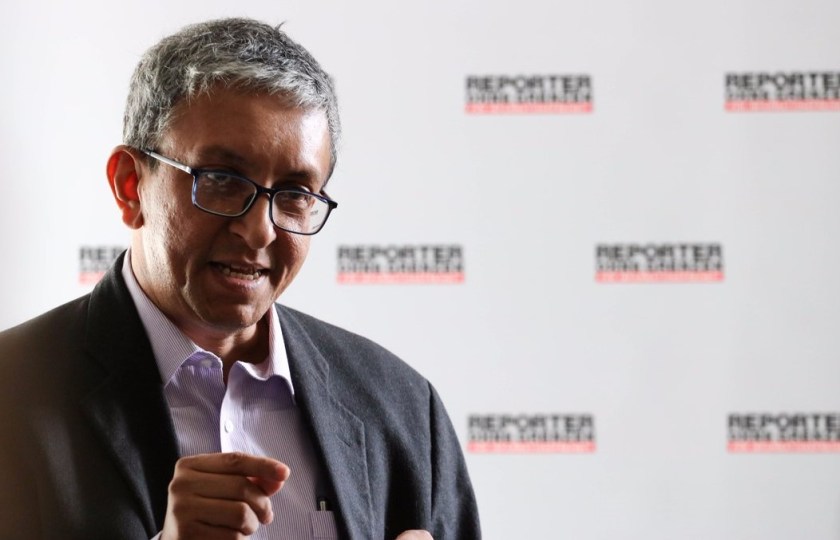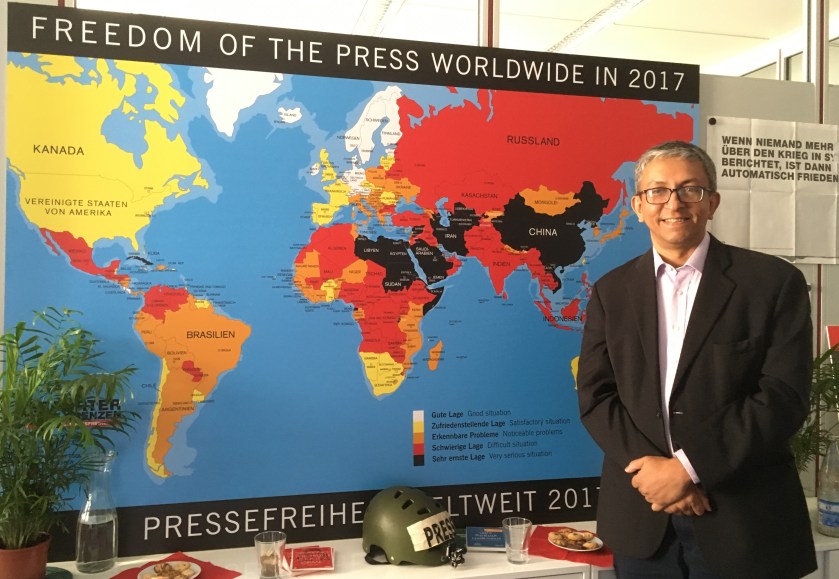
On a brief visit to Berlin, Germany, to speak at a media research and academic symposium, I was invited by Germany’s Reporters without Borders (RSF, or Reporter ohne Grenzen) to address a side event at their office that looked at media freedom status and media development needs of Sri Lanka.
It was a small gathering that involved some media rights activists, researchers and journalists in Germany who take an interest in media freedom and media development issues in Asia. I engaged in a conversation first with Anne Renzenbrink of RSF Germany (who covers Asia) and then with my audience.
I said the media freedoms have significantly improved since the change of government in Jan 2015 – journalists and activists are no longer living in fear of white vans and government goon squads when they criticise political leaders.
But the pre-2015 benchmarks were abysmally low and we should never be complacent with progress so far, as much more needs to be done. We need to institutionalise media freedoms AND media responsibilities. So our media reforms agenda is both wide ranging and urgent, I said (and provided some details).
I used my favourite metaphor: the media freedom glass in Sri Lanka is less than half full today, and we need to gradually fill it up. But never forget: there was no water, and not even a glass, before Jan 2015!
Sri Lanka has risen 24 points in the World Press Freedom Index that RSF compiles every year: 2016, we jumped up from 165th rank (in 2015, which reflected the previous year’s conditions) to 141st rank out of 180 countries assessed. The new ranking remained the same between 2016 and 2017. Sri Lanka is still marked as red on the world map of the Index, indicating ‘Difficult situation’. We still have a long way to go…
When asked how European partners can help, I said: please keep monitoring media freedom in Sri Lanka, provide international solidarity when needed, and support the journalists’ organisations and trade unions to advocate for both media rights and media professionalism.
I was also asked about slow progress in investigating past atrocities against journalists and media organisations; recent resumption of web censorship after a lull of two years; how journalists are benefitting from Sri Lanka’s new Right to Information law; the particular challenges faced by journalists in the North and East of Sri Lanka (former war areas); and the status of media regulation by state and self-regulation by the media industry.
I also touched on how the mainstream media’s monopoly over news gathering and analysis has been ended by social media becoming a place where individuals are sharing news, updates – as well as misinformation, thereby raising new challenges.
I gave candid and measured answers, all of which are on the record but too detailed to be captured here. My answers were consistent with what I have been saying in public forums (within and outside Sri Lanka), and publicly on Twitter and Facebook.
And, of course, I was speaking my personal views and not the views of any entity that I am working with.
